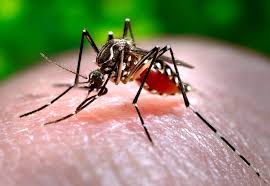Dengue fever is a mosquito-borne viral infection that poses a significant public health risk in many tropical and subtropical regions around the world. This article provides a comprehensive overview of what dengue fever is, its causes, and how it is diagnosed.
What is Dengue Fever?
Dengue fever is an acute viral illness caused by the dengue virus, which is transmitted to humans through the bites of infected Aedes mosquitoes, primarily Aedes aegypti and Aedes albopictus. There are four distinct serotypes of the dengue virus (DENV-1, DENV-2, DENV-3, and DENV-4), and infection with one serotype does not provide immunity against the others.
Causes of Dengue Fever
The primary cause of dengue fever is the dengue virus, which is transmitted to humans through the bite of an infected Aedes mosquito. These mosquitoes become carriers of the virus after biting a person already infected with dengue. Once infected, the mosquito can transmit the virus to other humans through subsequent bites. The risk factors for dengue fever include:
- Geographic Location: Living in or traveling to tropical and subtropical areas increases the risk of exposure to dengue-infected mosquitoes.
- Time of Day: Aedes mosquitoes are most active during early morning and late afternoon but can bite at any time.
- Environmental Conditions: Stagnant water sources, such as puddles, water containers, and old tires, provide breeding grounds for Aedes mosquitoes.
Symptoms of Dengue Fever
Dengue fever manifests with a range of symptoms that can vary from mild to severe. The incubation period, which is the time between being bitten by an infected mosquito and the onset of symptoms, typically ranges from 4 to 10 days. Common symptoms include:
- High fever
- Severe headache
- Pain behind the eyes
- Joint and muscle pain
- Nausea and vomiting
- Fatigue
- Skin rash
In some cases, dengue fever can progress to a severe form known as dengue hemorrhagic fever (DHF) or dengue shock syndrome (DSS), which can be life-threatening. Symptoms of severe dengue include severe abdominal pain, persistent vomiting, bleeding gums, rapid breathing, and blood in vomit or stool.

